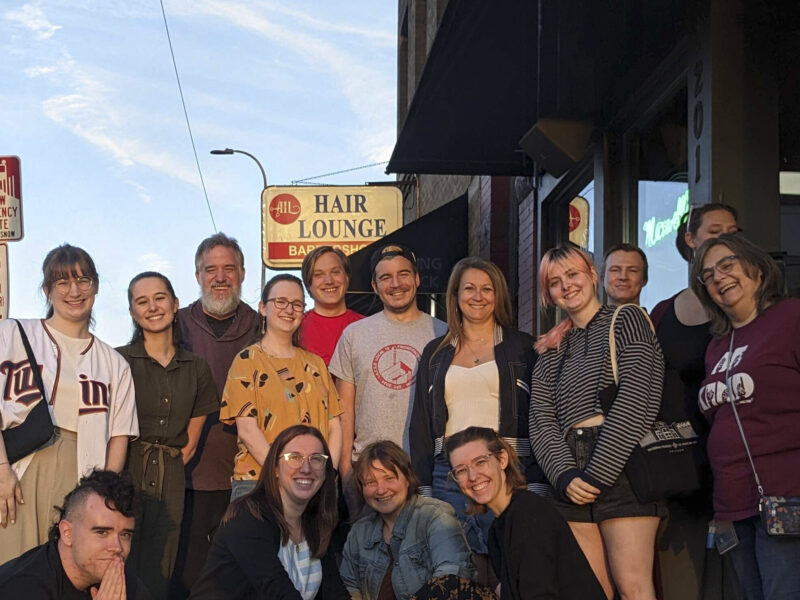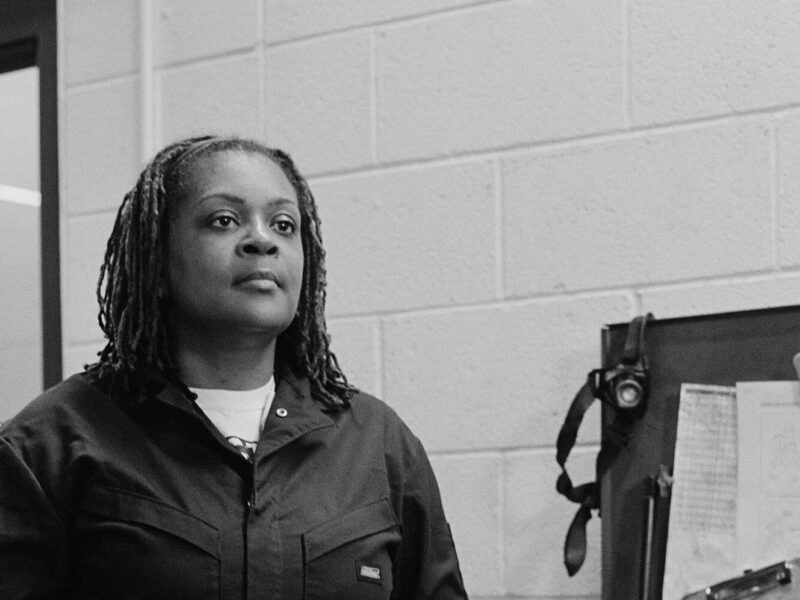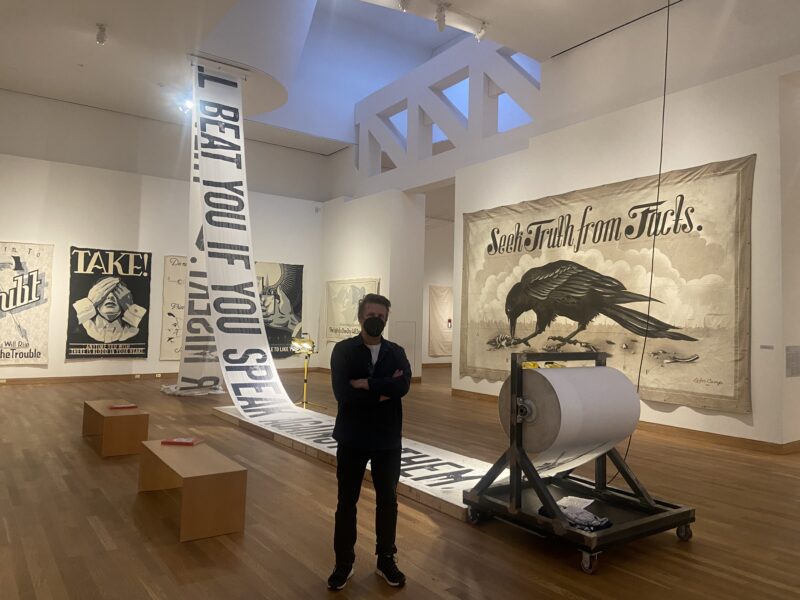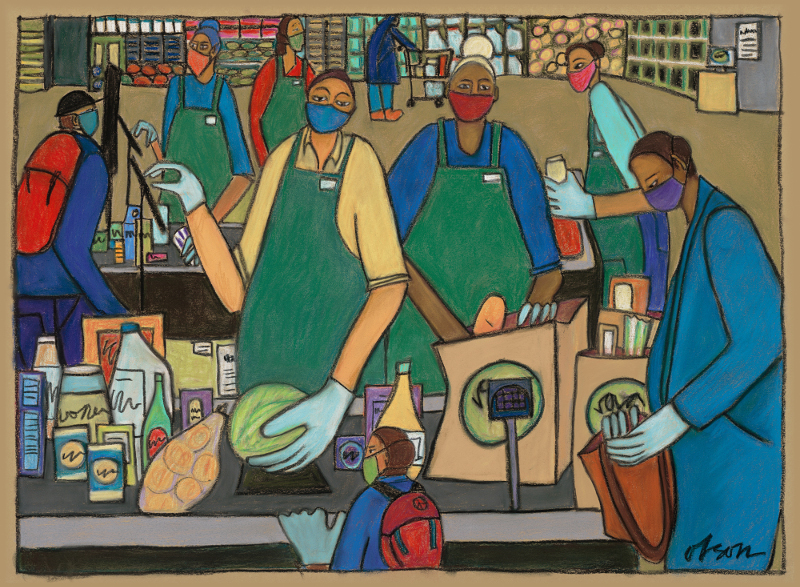Eva Nereson, 23, has worked as a housekeeper at the iconic Guthrie Theater in downtown Minneapolis for the past three years, in both part- and full-time capacities. She describes her duties as cleaning “everything that people are likely to see when they come in and see a show at the Guthrie,” including the lobby, carpets, bathrooms, and inside the theater.
In June, the front-of-house workers of the Guthrie, which includes guest services workers, box office staff, lounge hosts, janitors, and ushers, won their union with 70% of workers voting in favor. Represented by International Alliance of Theatrical Stage Employees (IATSE) Local 13, the workers are preparing to bargain their first contract.
They are fighting for wage increases, reinstatement of some positions that were cut, more transparency of pay tiers, scheduling hours two weeks in advance, additional safety training, and support with parking. Some positions, like ushers, work short shifts, and the cost of their wages for the day are eaten up almost entirely by the cost of parking in downtown Minneapolis, workers say.
In interviews with Workday Magazine, they reflect on the importance of their role in the Twin Cities’ arts community—as many are frontline workers at multiple local venues, an increasingly unionized sector, and contribute as working artists themselves.
Nereson describes the moment of calm after crowds of theater-goers rush in for a show: “It’s very zen for me.” In addition to working at the Guthrie, Nereson also works at the Minneapolis Park Board as an event attendant, and goes to school at Minneapolis Community and Technical College, where she also works with the school’s theater department.
Nereson began working at the Guthrie in 2022, shortly after the theater reopened following the pandemic lockdowns. She has worked in other janitorial positions, and says when she first started it felt like “the best job I’d ever had.” The theater offered bonuses to workers, various benefits and perks, and had an overall very positive work culture, she recalls.
However, as the months went by, Nereson says a lot of these perks faded away, with workers facing cuts to holiday pay and a decline in overtime approvals, alongside a reduction in full-time positions, which intensified the workload for the remaining workers.






